Below is a reproduction of an email conversation between Starkitten and myself, we were both at work and I think we were very bored with what we were doing….
From Starkitten:
I believe the technical definition of truth is 'something that takes a long time to get its boots on'. Which strangely enough still makes me truth because my new boots take a little getting into. But anyway, the Pratchett theory that lies travel faster than the truth does support the argument that the internet tells great big porkies, as it is indeed and super speedy means of communication. This must mean that the truth travels second class with Royal Mail, resulting in the high possibility of it taking several weeks to get to it's destination, assuming it ever gets there at all. The Post Office mail room must be positively brimming with truth.
From PM:
True, ha
Anyway Pratchett was quoting an older proverb, a Chinese one I think.
But in terms of real definitions the search for truth is actually a procedure for scientific principal as science is the search for the 'essential' truths. Philosophy, i.e. the perception of truths and therefore also the perception of lies, is the searching for meaning and strangely enough there is often more meaning in a well-constructed lie than in the truth. Which is kinda weird, but there you go. Are you purposefully trying to make my mind work to prevent it being numbed by the mundanity of work?
From Starkitten:
So, philosophically speaking, a meaning is better than a truth, for in humanity's constant struggle to find purpose in its own existence any meaning, even a poorly constructed one (not to mention any names – ahem – Christianity) can give us some sense of direction. So while a nice meaning may be that we were created by an all powerful being for some greater purpose with the promise of eternal bliss at the end life, the truth may be that those little acids and proteins that mixed together and made the first life was a bit of a boo boo and we're all messing up someone's nice clean universe. In that case I can see why most people would prefer the lie.
As for science, truth seems to change on a day to day basis. For what is true today may not be so tomorrow, and any truth will do until they find another one which seems to work better. So we really can't be sure of anything that anyone says, so I'm now choosing to disobey the laws of Physics as I can't be completely certain that they are fundamental truth and not just a good one which seems to work at the moment, and I'm giving up gravity.
From PM:
Well, close but I think that I have to say no cigar.
It is not that a meaning is better or more cosy than a truth, it is just that we cannot define truth or lies (in this current understanding of those) without having meaning. So philosophy must explain meaning. As for whether truth or lies are better or worse that is irrelevant they are in fact just different, each of them is actually wrong. There are no eternal verities that we can rely on as we are in fact only giving names to phenomena in order to better understand the fact that they exist.
As you correctly pointed out gravity does not exist. We merely notice the effects of force upon objects, or not upon them as is the case with zero-g (though this in itself is a misnomer as Zero-G is only achieved when one force equally nulls another force i.e. a spaceship in orbit exhibits the exact force against the pull of gravity to negate the pull of gravity, there is not in fact any zero-g just an equilibrium of forces acting upon each other [I think, seem to recall from physics so very long ago that force doesn't actually stop just its effect on the other bodies in the universe becomes negligible over the vast differences – bollocks ask a physicist].)
So science must constantly seek to update its 'eternal truth' not because it finds out what it believed in was a lie, but because it has a better definition of what it is observing. Truth then defines itself by the study, or non-study of the universe (the absence of an item creates the existence of the study of what isn't there). We cannot be so simple as to say that this is then a product simply of causality, as causality relies on an event occurring in order to provoke a study of linear nature (which we could call time) whereas science postulates, and also can prove, the existence of non-events. Effects without cause. Once we can define what these things are we can understand the truth of them.
This then is why people believe in 'cosy' accepted versions of religion; as the idea that we must constantly strive to find new meaning in our understanding in order to truly define what those things we believe in or observe are, is to take away the solid surface that holds our conception, or perception, of reality away from the deep abyss of 'truth', 'meaning' or in this case understanding.
It is neither truth, meaning or the definition of either that most of humanity strive for, it is the feeling that we understand what we can perceive or not perceive. We must feel that ‘we know’ for without knowledge we are forced into believing that we are an empty collection of indefinable random occurrences, that have a pre-determined, yet thoughtless, propensity for interaction.
From Starkitten:
I must contest that humanity does not seek meaning and truth. While I do agree that we primarily strive to comprehend what we are able to perceive, this is because for the most part we believe what we perceive to be truth, so though understanding our perception of the universe we believe that we will find truth. This, however, can not be, for we are ill-equipped to contemplate that which lies beyond our own perception besides that which we believe to exist outside our perception, which we only imagined to be there by looking at what we can see and creating suppositions from that on what else there should be. This is a very narrow view of the universe and cannot even begin to give us a concept of the actual truth.
Anyway, the point was that if we were capable of conceiving truth beyond our perception, we would strive for that rather than content ourselves with a version of the truth that seems acceptable to us and placates our enormous human egos. It seems that we have some drive which propels us to find answers. If it were not in our nature to seek out the truth, then why is it one of our most natural instincts to ask questions? We are in fact designed to be quizzical, seeing out answers from where ever we can get them. Perhaps to seek out the truth is our purpose. That given long enough, assuming we don't blow ourselves up or anything, we may actually discover the answer. Perhaps we operate collectively as a super computer (Deep Thought – hee hee hee), constantly probing and questioning each other, inspiring though, theory, research and exploration, until eventually we do find the truth, that the universe is like a great big rubix cube with the sole purpose to be solved.
From PM:
Well it's nice that you replied so thoughtfully, but you could have tried to reply to my thesis instead of your own preconceptions, snooty I know but I was moving somewhere I think, probably moving badly, but moving nonetheless.
To begin, I did not say that Humanity does not strive to seek truth and meaning I said that 'most of' Humanity does not seek these things as they are too concerned at the implications of that search and also that they seek brevity not depth.
That aside though: We do not comprehend what we perceive, I said we respond to it and form hypothesis from it and from this hypothesis we initiate our understanding, this is not perception based but reaction based. Often we observe the reaction of events without ever perceiving the event we in fact have to hypothesise, or imagine if we use your rhetoric, what those events are. We can never perceive the explosion of the universe as it happened too long ago but we can perceive it by the remains and effect it has on the things we can observe. But we still do not comprehend it for it cannot be beholden, just theorised.
As for imagination leading to a narrow view of the universe as it is constrained by the limited gainsaying of reaction-based opposition hypothesis, that is clearly only your limited view of theoretical conceptualisation. It does not give us a limited view, it in fact gives us a broadened view. By loosening the shackles of perception based prognosis we truly 'open the doors of perception' as Blake would have it. Two thousand years before Rutherford discovered the existence of the atom the word had been created by philosophers in Greece to mean unbreakable, they had already understood that the entire of everything was made up from tiny blocks of matter, too small to be seen, existing in a limited number of shapes but capable of creating an infinite number of conceptions. All of our understanding of physics, biology and chemistry is now based on this provable set of constructions, but it was 'dream't off' in someone's philosophy first.
It is not in our nature to seek out truth and to ask questions, you are confusing intellectual theoretics with carnal acquisition. The thrust of constant questioning of everything is in order to supplant one ideology with another, to lessen your enemy and in its place put yourself. That is a product of group behaviour, part of our pack animal history, we seek to place ourselves at the top of a food chain, even if the nourishment in this case is acceptance of argument (which is sort of what I am doing at this point).
Our function is to procreate and evolve. Our search is for understanding, not meaning or truth. But, the search for understanding has to be achieved through truth and meaning. 'Beauty is truth', but beauty is in the eye of the one who beholds it so we can never understand each others truth, simple procrastination is the destruction of conceptualisation.
But you are fully on the ball when you stated:
'if we were capable of conceiving truth beyond our perception, we would strive for that rather than content ourselves with a version of the truth that seems acceptable to us and placates our enormous human egos. It seems that we have some drive which propels us to find answers.'
That is an essential thrust of a great argument, and one which we can both agree, a synthesis that we have created from our thesis and antithesis.
——————————————-
A final note (very brief and not without some holes):
Science is the search for truth:
Which is why new discoveries can rewrite entire scientific dogma. Science has no meaning, it is merely a method by which we seek to distinguish truth from the broad canvas on ignorance.
Philosophy is the search for meaning:
Philosophy seeks to define the meaning in existence often without even observing it in a strictly empirical sense.
Religion is the search for understanding:
Religion is not philosophy or science, although many great scientists and philosophers have been religious their only crossing is when they seek to add understanding to truth or meaning. Religion is a tool we use to bring order to a universe whose truths we have never fully explained and to whose meaning is so vast that it is almost beyond conception.
Read and post comments | Send to a friend



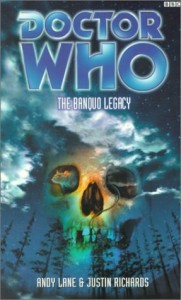
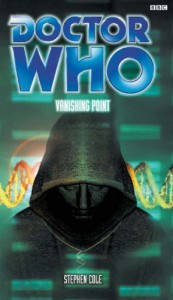


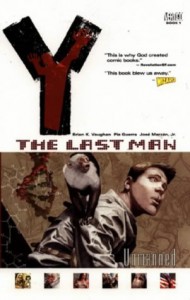

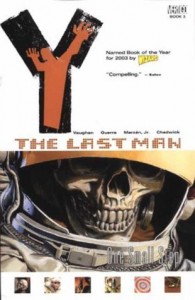
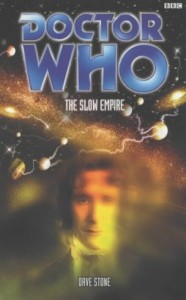






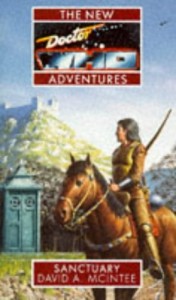
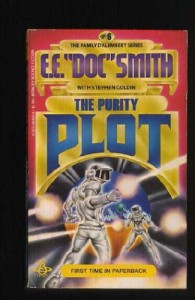
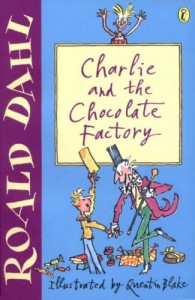
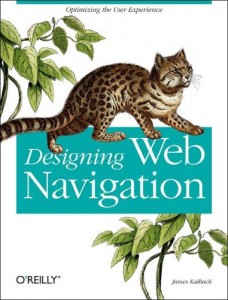

Comments